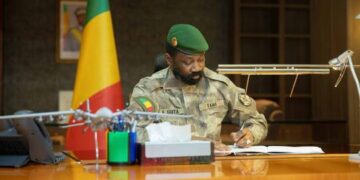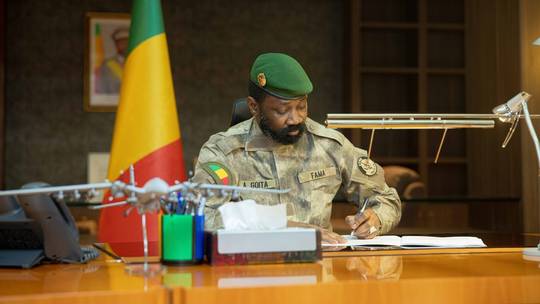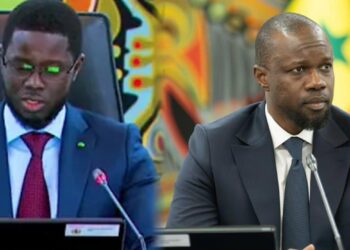By John Ikani
Malian political factions expressed strong discontent on Wednesday (Sep. 27) regarding the junta’s decision to delay the presidential election, which was meant to reinstate civilian governance.
On Monday (Sep. 25), the ruling junta disclosed a postponement of the presidential election initially set for February 2024 in the West African nation troubled by jihadist activities.
A government spokesperson stated that new election dates “will be communicated later.”
The cited reasons behind this delay encompassed challenges linked to the adoption of a new Constitution earlier this year and a review of electoral lists. Additionally, a dispute with French company Idemia, involved in the census process, was mentioned by the spokesperson.
The M5-RFP opposition coalition condemned the “unilateral” choice to postpone the two rounds of voting, originally slated for February 4 and 18, 2024, stressing that it is “imperative” for the junta to “respect its commitments.”
In 2020, the Movement of June the 5th – Coalition of patriot forces, also known as M5-RFP, led protests against then-president Ibrahim Boubacar Keïta, eventually resulting in his ousting in a coup later that year. However, the M5-RFP, which turned into critics of the ruling junta, was marginalized by the new authorities.
Since Monday (Sep. 25), other political parties have criticized the postponement of the February 2024 elections.
The Democratic League for Change expressed “disappointment” and vehemently denounced the junta’s “effort to hold Malian democracy hostage.”
The Yelema party criticized the move for its “lack of foresight,” as well as the authorities’ “incompetence” and their “failure to honour their commitments.”
The opposition party Parena argued that conducting elections relies on “political will” and that some of the technical reasons cited by the junta could have been “avoided.”
Former Malian Justice Minister Mamadou Ismaila Konaté accused the junta on social media of attempting to deflect from its shortcomings and inability to manage public affairs by primarily attributing the postponement to a French company providing civil identity services.
Challenge to regional bloc ECOWAS
ECOWAS has not officially responded to the latest announcement but has been pressuring the junta since 2020 to reinstate civilian leadership.
The 15-member organization, which upholds a “zero tolerance” stance toward coup d’états, has faced a series of coups in Mali’s neighbouring countries, including Burkina Faso and Niger, as well as in Guinea.
The junta’s announcement in Mali represents another setback to the timetable for the return of power to elected civilians. The soldiers, responsible for consecutive coups in 2020 and 2021, had previously pledged legislative elections for February 2022.




































